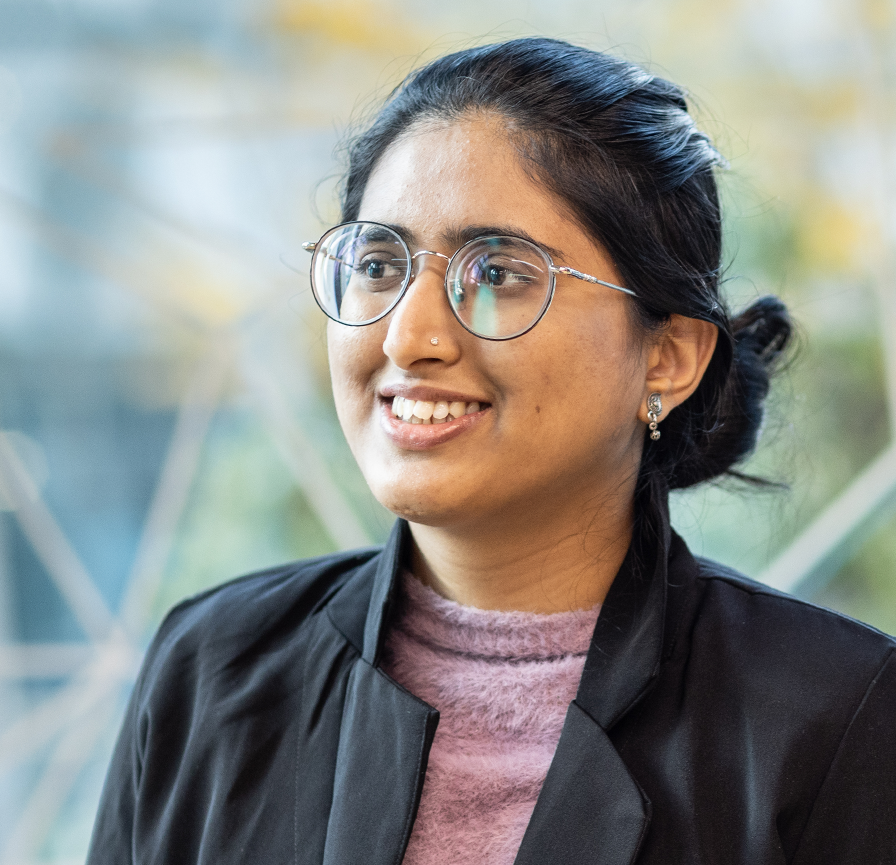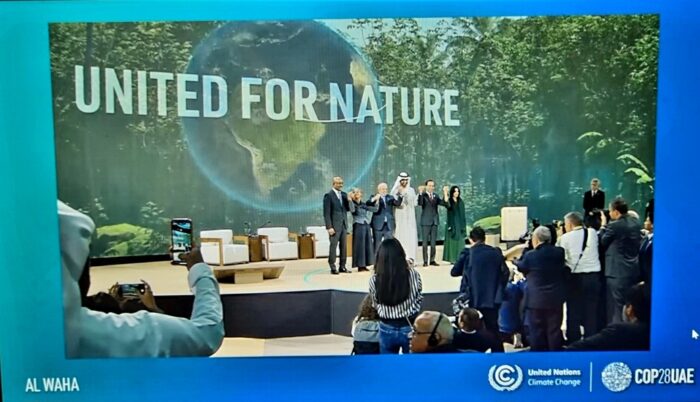Research Student Spotlight: Jyoti Narsude and her hopes after COP28

Jyoti Narsude, a member of the water@leeds PGR network, attended COP28 as part of the Priestley Centre for Climate Futures team.
Jyoti has shared her reflections on attending COP28 and answered some questions for us on how this relates to her research, and her hopes for action in the future.
Jyoti’s PhD project: The Role of Rhizospheric Interactions in C Sequestration of Temperate Agroforestry Systems.
Supervisors: Professors Joseph Holden and Pippa Chapman.
COP28 was held at the Expo City Dubai United Arab Emirates from November 30 - 13 December 2023 and marked the conclusion of the first global stocktake of the world's effort to address climate change and its related challenges under the Paris Agreement. This conference of UNFCCC gathered 198 parties, observers, and media with more than 80000 delegates.
What were your hopes for the negotiations, especially in relation to your research interest?
My main hope is for the management of greenhouse gas emissions from land degradation as it is estimated that around 70 gigatonnes of carbon will be emitted by 2050 through land use and land change activities with the loss of the soil’s fertile layer. Hence negotiations between low and middle income countries to foster nature-friendly land management practices should be carried out instead of conventional agricultural practices for food production to reduce hunger.
I would also like to see plant species have an economic value based on their biological and ecological importance and achieve maximum carbon sequestration in soil based on their physicochemical and biological potential.
Did you think the conference negotiations addressed what you had hoped for?
Yes, this COP focussed on human-driven problems such as biodiversity loss and climate change; the challenges faced by farmers who practice organic farming and the problem of insufficient policies to tackle the challenges. For instance, almost 160 countries have signed the proposal raised by Brazil on the new Tropical Forests Forever at the Food and Agriculture event.
Also, collaborative negotiations took place between multilateral funds from developed countries for green climate investment in the least developed countries. Although, negotiations between scientific communities and policymakers on some basic questions regarding research on improving the health of the land are still needed - like the methodological challenges to studying rhizospheric areas in agroforestry systems and lack of education in farmers on the importance of rhizospheric interactions in maintaining the efficiency of land.

Screen capture from COP28 taken by Jyoti.
What action would you like to improve land management/degradation in the future?
Firstly, we need to understand the causes of land degradation from an eco-centric viewpoint. Based on these causes, an adaptation of nature-based land management strategies including afforestation, regenerative agriculture practices, zero tillage, and agroforestry systems is essential to stabilize the resilience and maintain the integrity of the land. However, the study of interactions between roots, soil, and microorganisms in different climatic zones is necessary to manage the site specifications.
For example, in my research, I am looking for the C sequestration potential of agroforestry systems by analysing above-ground and below-ground biomass including leaf litter in hedges, and soil and root biomass in alley cropping. At COP28 I attended side events arranged by ICRAF on the benefits of agroforestry systems to soil health. At the session, I questioned the panel about the new Soil Health Cards scheme in India which will control the excessive use of fertilizers and improve the resilience of soil.
Has attending COP28 influenced the questions you will be addressing in your research?
Partly yes, researchers and policymakers have actively addressed nature-friendly land management techniques including the benefits of agroforestry systems for the prevention of excessive greenhouse gases from the agriculture field. However, there is a need to study how above-ground and below-ground biomass alters the potential of C storage in the soil through rhizomicrobial interactions.
What was your main takeaway from having attended COP28?
More profoundly I must say the main takeaway of this COP is seeing the active participation of young people in a global conference with the support of more experienced delegates, empowering them to be involved in climate policy development and decision-making while promoting comprehensive strategies to achieve and set targets. I hope this will ensure intergenerational collaborations can efficiently deal with world climate change. Hence in this scenario, for a liveable green future, we need large-scale robust solutions that can work on local to global levels focusing on implications in governance, social justice, and culture that can promote sustainable and equitable policies for the betterment of Mother Earth.
